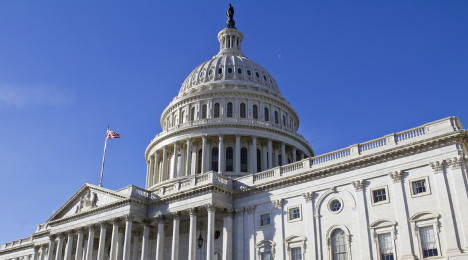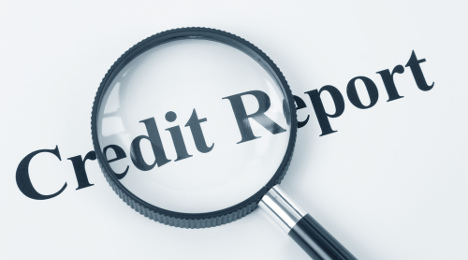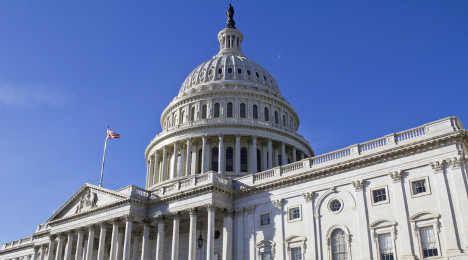The chairman of the U.S. House Financial Services Committee is urging Attorney General Loretta Lynch and other federal officials to stop distributing $80 million in settlement proceeds from the Consumer Financial Protection Bureau’s enforcement action against Ally Financial.
A second committee report released on Wednesday says the CFPB is distributing money without verifying that recipients are eligible to receive it. Lawmakers claim the result is some white borrowers are getting settlement checks over alleged racial discrimination against African-Americans, Hispanics and Asians.
House members came to that assertion because that what the CFPB concedes in its own internal analysis obtained by the committee, which released internal bureau documents on Wednesday as part of a staff report.
That same report also reveals the Department of Justice originally objected to the CFPB’s approach but later acquiesced, evidently in the face of “push back at senior levels” from bureau officials, as one document states.
House committee members acknowledge it is unclear whether CFPB director Richard Cordray personally approved this action or whether the decision was made by Patrice Ficklin, the bureau’s Assistant Director for Fair Lending and Equal Opportunity.
“Sending remuneration checks to white borrowers as a means of remedying alleged discrimination against African-American, Hispanic, and Asian borrowers is an unorthodox approach to fair lending enforcement, to say the least,” notes the staff report, which can be downloaded here.
Chairman’s requests
Financial Services Committee chairman Jeb Hensarling, a Republican from Texas, asked the attorney general to immediately suspend distribution of the settlement proceeds “until such time as you have certified that all claimants have verified their eligibility in writing under penalty of perjury.”
Hensarling told Lynch the CFPB’s action “invites fraud on a massive scale.” The Texas lawmaker went on to make several other points in his letter to Lynch that’s available here.
“It defies logic for federal agencies to distribute settlement funds without first verifying the eligibility of prospective recipients, particularly when the bureau’s case is premised upon a flawed statistical analysis,” Hensarling said.
To find minority borrowers, Hensarling asserted the CFPB essentially makes “educated guesses” using an algorithm that assigns probabilities to whether borrowers are minorities based on their last names and where they live.
The Department of Justice originally proposed to the CFPB a distribution method that “[p]rovides strong protection from criticism that we are giving damages to non-Hispanic white borrowers,” according to a bureau PowerPoint presentation.
In the same presentation, however, bureau officials note that “if we adopt DOJ’s proposed limitation” then potentially only 36,000 to 143,000 consumers would receive checks — far fewer than the 235,000 consumers Cordray had publicly alleged were harmed by Ally.
The report goes on to indicate that adopting the Department of Justice’s plan would therefore expose Cordray’s estimate “as wildly inflated” and the bureau’s disparate impact methodology as “deeply flawed.”
The report adds, “In fact, Director Cordray did not know how many alleged victims there were in the Ally case because the bureau could not identify the race of any consumer whose finance contract had been purchased by Ally.”
Lawmakers went on to mention the report discloses the government mailed 419,669 letters to potential claimants in an attempt to find the 235,000 minority borrowers Cordray claimed were victimized. Indeed, a bureau official informed the committee the CFPB mailings ultimately generated 235,319 Ally accounts eligible to receive checks.
“Political exigency required the bureau to design a process that would ensure that a sufficient number of alleged victims would be identified as eligible claimants; after all, if fewer claimants received checks than director Cordray initially announced, the validity of the bureau’s disparate impact methodology would be called into question,” the report said.
“But, as internal documents reveal, bureau officials knew that in order to generate a sufficient number of check recipients, they would have to remove a number of safeguards from the claims process, including confirming the race of claimants alleged to have been discriminated against, thus making it more likely that non-minority consumers would receive remuneration,” it continued.
“Confronted with such a dilemma, the bureau chose to save face by engineering its desired result rather than implementing a claims process reasonably designed to identify alleged victims and discourage fraud,” the report went on to say.
The staff report is the second released by the committee on the CFPB’s enforcement actions against vehicle finance companies.
Members explained the first report, released in November, revealed the bureau pursued — and Cordray approved — its potentially “market-tipping” enforcement action against Ally even though internal bureau documents revealed the statistical method upon which its case rested is “prone to significant error.” The CFPB was able to secure its settlement with Ally because of “undue leverage”— the company needed Washington regulators’ approval for a broader restructuring of its business, according to the House findings.
Lawmakers added Ficklin will be called to testify before the Financial Services Subcommittee on Oversight and Investigation in early February at a hearing on the CFPB’s auto lending supervision, enforcement and rulemaking.
Dealertrack Technologies said on Wednesday that the 2016 edition of the Dealertrack Compliance Guide is now available in print and online! For 11 years, Dealertrack has been the industry’s single best source of compliance guidance written for dealers and is free.
The company highlighted the seven attributes that are new to the 2016 version, including:
— New federal laws and regulations in effect for 2016
— A focus on new federal laws and regulations related to dealer advertising
— Advice regarding actions by agencies such as the Consumer Financial Protection Bureau, Federal Trade Commission, legislatures and courts
— Recommended practices for data safeguards and identity theft protection
— How to implement a compliance management system at your dealership
— New links to valuable online F&I compliance resources
— Immediate access to the new online version of the guide
“It is the only guide available in the market that combines current regulatory facts with trends and practical guidance that can be applied with little effort,” Dealertrack said.
“Dealers can use this guide on daily basis to protect their dealership from audits, fines and consumer fraud,” the company continued. “It also serves as a great reference for lenders, aftermarket providers, agents and more.”
The guide can be acquired online here.
Covington — a law firm with a global footprint and whose stable of professionals includes former Attorney General Eric Holder, NFL Commissioner Paul Tagliabue and Homeland Security Secretary Michael Chertoff — created a new consumer financial services practice aimed at assisting clients with Consumer Financial Protection Bureau investigations, examinations and enforcement actions.
Leading this new practice will be co-chair Eric Mogilnicki, who has joined the firm as a partner in its Washington, D.C., office. Andrew Smith, who served as a senior financial services lawyer at the Federal Trade Commission prior to joining Covington, will also lead the newly formed group.
Covington highlighted that Mogilnicki has the combination of four years’ experience at the center of some of the nation’s most critical public policy debates as well as more than 20 years of experience advising and representing financial institutions. In addition to his extensive experience in private practice, Mogilnicki previously served as chief of staff to Sen. Edward Kennedy when the CFPB was designed and has been a leader within the private bar on CFPB issues since its inception.
The firm also mentioned Mogilnicki’s CFPB experience includes counseling clients facing informal requests for information from the bureau to providing financial institutions and other interested parties with product reviews, mock examinations and other guidance prior to the commencement of CFPB examinations, representing entities in responding to CFPB civil investigative demands, negotiating consent orders with the CFPB, and assisting financial institutions in complying with CFPB consent orders.
“The combination of Eric’s very visible and successful CFPB enforcement experience with Andrew Smith’s prominence on consumer financial services advisory and policy matters positions Covington as an industry leader in the consumer financial services space,” said John Dugan, chair of the firm’s financial institutions group and former U.S. Comptroller of the Currency.
“As the CFPB is coming of age, we now have critical mass of experience in significant CFPB enforcement and advisory matters in a very active area for financial services providers,” Dugan continued.
Prior to entering private legal practice, Mogilnicki served as Assistant Attorney General in Massachusetts from 1987 to 1991. During that time, he engaged in trial and appellate practice in federal and Massachusetts courts.
Prior to law school, he served as a legislative assistant to U.S. Rep. Gerry Studds. Mogilnicki received his B.A. and J.D. degrees from Yale University.
“Covington presents a wonderful opportunity to build a more substantial CFPB enforcement practice at a key point in the evolution of the agency’s activities,” Mogilnicki said.
“The depth of Covington’s regulatory subject matter expertise, counseling practice, and related enforcement experience is unmatched, and I look forward to helping the firm build its practice further in this area,” he went on to say.
With today marking the last installment of SubPrime News Update for 2015, we conducted our own portfolio analysis to uncover what turned out to be the top 10 stories of the year stemming from online traffic to our website.
Not surprisingly, nearly all of the reports had some connection to a regulator; be it at the state level or the Consumer Financial Protection Bureau.
As SubPrime Auto Finance News joins the rest of the industry in gearing up for 2016, here’s a recap of the top 10 stories of the year:
10. CFPB suing SNAAC over debt collections
WASHINGTON, D.C. (June 17) — While officials said the complaint is not a finding or ruling that the finance company has actually violated the law, the Consumer Financial Protection Bureau sued Security National Automotive Acceptance Co. (SNAAC) for aggressive debt collection tactics against servicemembers.
In a complaint filed in federal court, the CFPB alleges that SNAAC used a combination of illegal threats and deceptive claims in order to collect debts. The CFPB said it is seeking compensation for harmed consumers, a civil penalty and an order prohibiting the company from committing future violations.
Through this lawsuit, the bureau indicated that it seeks to stop the alleged unlawful practices of the company. The bureau also requested that the court impose penalties on the company for its conduct and require that compensation be paid to consumers who have been harmed.
9. This year’s SubPrime Auto Finance Executive of the Year
CARY, N.C. (Oct. 26) — SubPrime Auto Finance News announced this year’s recipient of the SubPrime Auto Finance Executive of the Year Award, presented by Black Book Lender Solutions. The accolade is going to Dan Ulatowski, who is the chief sales officer at Credit Acceptance, one of the leading special finance companies in the industry.
Ulatowski has been with the company since 1996, holding a variety of different roles within that span. Credit Acceptance tapped him for his current post last January as the company has seen its GAAP net income per share grow at a compounded annual rate of 20.4 percent, with an average annual return on equity of 21.4 percent since becoming publicly traded 22 years ago.
8. 6 components of Santander’s latest enforcement action from Federal Reserve
WASHINGTON, D.C. (July 7) — Within a seven-day span that included the co-founder and chief executive officer resigning and the chief financial officer being promoted to take his place, Santander Consumer USA’s parent company reached an enforcement action agreement with the Federal Reserve Bank of Boston.
Fed officials broke down a series of tasks Santander Holdings USA must complete within the next 60 days that fell under the categories of:
— Board oversight
— Risk management
— Capital planning
— Liquidity risk management
— Compliance with laws and regulations
— Progress reports
7. House passes CFPB reform bill
WASHINGTON, D.C. (Nov. 19) — To the delight of many in the automotive industry, the House of Representatives voted on and passed a bill aimed at altering the Consumer Financial Protection Bureau’s handling of indirect auto financing.
With a vote of 332 to 96, the House passed what the American International Automobile Dealers Association labeled a “common sense piece of legislation,” otherwise known as the Reforming CFPB Indirect Auto Financing Guidance Act.
If it passes through the Senate and is signed by the president in its current state, the legislation will amend the Consumer Financial Protection Act of 2010.
6. DOJ Issues CID to Springleaf about OneMain acquisition
EVANSVILLE, Ind. (May. 1) — Coinciding with the company offering more than 22.7 million shares of common stock to help to pay for the acquisition, Springleaf Holdings acknowledged that its intended purchase of fellow subprime institution OneMain Financial Holdings is running into some regulatory hurdles.
In a filing sent to the Securities and Exchange Commission, Springleaf indicated it was notified by the Antitrust Division of the U.S. Department of Justice on March 22, stating that the agency would be reviewing the proposed transaction, which was first announced back on March 2 and included an aggregate purchase price of $4.25 billion in cash.
Company officials explained that DOJ would be reviewing the proposed acquisition from an antitrust perspective.
5. Fifth Third Bank ordered to pay $18M, reduce mark-up to 1.25% or less
WASHINGTON, D.C. (Sept. 28) — First Ally Financial, then American Honda Finance Corp., and now, the Consumer Financial Protection Bureau added Fifth Third Bank to its list of recipients of multi-million-dollar actions for what the regulators determined to be discrimination in vehicle financing.
As part of its $18 million penalty in the auto space, the CFPB and Department of Justice ordered Fifth Third Bank to substantially reduce or eliminate entirely dealer discretion. Officials told the bank to pay that $18 million to “harmed” African-American and Hispanic borrowers. Meanwhile the dealer participation stipulations included in the agreement are similar to what Honda Finance is being forced to do.
According to second quarter data from Experian Automotive, Fifth Third Bank tied for No. 15 in overall market share, holding 0.99 percent with fellow Midwestern commercial bank Huntington and USAA.
4. CFPB action against Westlake tops $44M
WASHINGTON, D.C.(Oct. 1) — The second significant Consumer Financial Protection Bureau enforcement action of the week in the auto finance space hit one of the largest players in the subprime market — Westlake Financial Services.
CFPB punished Westlake and its auto title lending subsidiary Wilshire Consumer Credit for pressuring borrowers using what officials deemed to be illegal debt collection tactics.
The bureau indicated that it found Westlake to have committed several infractions, including:
— Deceived consumers by calling under false pretenses and using phony caller ID information
— Falsely threatened to refer borrowers for investigation or criminal prosecution
— Illegally disclosed information about debts to borrowers’ employers, friends, and family.
3. $500K ad campaign against CFPB launches
WASHINGTON, D.C. (Nov. 10) — For dealership principals and finance company executives who might be watching the fourth Republican presidential primary debate, they might not want to step away during a commercial break: an advertisement is planned to highlight the position against the Consumer Financial Protection Bureau.
The American Action Network (AAN) — an organization that says it creates, encourages and promotes center-right policies based on the principles of freedom, limited government, American exceptionalism and strong national security — is launching a $500,000 ad campaign against the CFPB.
AAN officials explained the national ad buy will run throughout the evening on Fox Business, the host of the fourth GOP primary debate.
2. 22 vehicles that might work better for longer-term contracts
IRVINE, Calif. (Dec. 16) — With contract terms continuing to lengthen, perhaps this year’s contingent of Best Resale Value Awards from Kelley Blue Book might provide finance companies with vehicles to enhance underwriting and origination decisions.
The 2016 model-year brand and category winners of the annual award program recognizes vehicles for their projected retained value through the initial five-year ownership period.
“KBB Best Resale Value Award winners are great for long-term financing because they increase the odds that the vehicle will have equity should the customer or the finance company have to sell the asset prematurely,” said Eric Ibara, director of residual values at Kelley Blue Book.
1. NY regulators shut down Condor Capital
NEW YORK (Jan. 2) — Condor Capital is no longer originating and servicing vehicle installment contracts for dealers who cater to subprime customers in New York or more than two dozen other states.
Just before the holiday, the New York Department of Financial Services submitted a final consent judgment to be approved by the Empire State’s court system to settle the department’s lawsuit against Condor Capital that first sprouted last spring.
New York Superintendent of Financial Services Benjamin Lawsky sent the order against, Condor, a subprime auto finance company based in Long Island, and its sole shareholder, Stephen Baron.
Among other violations, Lawsky claimed the defendants deceptively retained millions of dollars owed to vulnerable borrowers and overcharged them for interest in violation of the Truth in Lending Act.
Occurring in part because of the concentration of finance companies in the area, the National Automotive Finance Association is hosting the next in-person session to create another cohort enrolled in its Consumer Credit Compliance Certification program in the Dallas area.
The NAF Association will conduct the opening module of the four-part training endeavor at the Dallas/Fort Worth Marriott Solana in Westlake, Texas on Jan. 21-22.
Another large contingent of graduates completed the program just ahead of Used Car Week in Scottdale, Ariz.
The NAF Compliance Certification Program has been a runaway success story,” said Hudson Cook partner Tom Hudson, who was part of the group that crafted the program curriculum.
After two days of classroom style learning in Texas to complete Module 1, participants will move onto the 29 self-paced, Web-based sessions covering federal and state laws and regulations that govern the auto financing business.
Successful testing throughout the program is necessary before progressing in the program.
The certification of Compliance Professional awarded upon completion of Module 4, a live classroom session covering the Consumer Financial Protection Bureau.
“A critical part of a compliance management system is staffing it with qualified compliance personnel,” NAF Association executive director Jack Tracey said.
“A company having their compliance officer(s) certified through a comprehensive educational program is a clear demonstration of the importance the organization places on compliance,” Tracey continued.
This program is available to the staff of NAF Association member companies at the price of $2,000 per person and non-member companies at $3,000 per person.
For more information, visit nafassociation.com or send a message to [email protected].
ACA International dissected the 2015 fiscal year annual report by the CFPB Ombudsman’s Office that’s generated for Richard Cordray, director of the Consumer Financial Protection Bureau.
Officials found the recently released report focused heavily on three potential changes to the CFPB’s consumer complaint database to make it a more effective tool for companies that participate in it.
For instance, the ombudsman followed up on findings from its fiscal year 2014 annual report about the need for data normalization in the consumer complaint database. “This year, we provided feedback and suggestions to the CFPB regarding normalization of the data,” the report said.
The report also noted that the CFPB addressed this issue by putting out a request for information on how to go about data normalization. ACA International was among the organizations that submitted a response this past summer.
“ACA’s comments stressed the importance of complaint data normalization as one way to improve the flawed complaint database so that it is less misleading than what currently exists,” organization officials said.
“By providing context to raw complaint data, ACA argued that the database will be less likely to mislead consumers into attaching undue weight to sheer numbers of complaints, as well as better reflect a company’s actual performance,” they continued.
After examining the consumer complaint database in response to stakeholder concerns, the ombudsman indicated that it worked with the CFPB in an effort to address issues with third party consumer complaint submissions and duplicate complaints.
According to the report, “when third parties submit complaints online on behalf of multiple consumers and complete the submission forms incorrectly, the resulting complaints may have inconsistent information. As a result, the company that is the subject of the complaint may not recognize the consumer and/or the consumer may not be able to access the complaint.”
The ombudsman’s report noted the CFPB plans to address this issue in the future by updating the instructions for consumer complaint submissions.
The report also highlighted company concerns over the CFPB’s definition of “duplicate” in assessing consumer complaints.
According to the CFPB’s Office of Consumer Response, to be considered a duplicate, a complaint must be a verbatim copy of a complaint already submitted. Because of this definition, multiple complaints submitted by the same consumer, regarding the same transaction, the same company, and essentially the same issue — even without presenting any new information — do not meet the definition of a duplicate if the consumer does not use the exact same language in each.
As a result, companies have shared with the ombudsman that when they flag such similar complaints as being duplicates, Office of Consumer Response returns the complaints to the company for a reply because the underlying complaints are not verbatim copies of one another.
To address this, at a Sep. 9 Ombudsman Forum, in which ACA participated, leaders in the financial service industries suggested re-defining a duplicate complaint as one that comes from “the same person, same transaction, and same issue.”
According to the report, to address industry’s concerns over the identification of duplicate complaints, the ombudsman recommended that Consumer Response either provide an updated definition to companies for a duplicate that is not a verbatim copy (such as the definition suggested by industry at the forum), or alternatively to share the existing verbatim definition of a duplicate on the Consumer Complaint Database webpage so that users have a clearer understanding and can make appropriate adjustments.
More about press releases and field hearings
ACA International recapped that the report also included information about the ombudsman’s broader study of CFPB field hearings, and consent orders and their accompanying press releases in 2015.
“This year, the CFPB has faced increased scrutiny for the seemingly harsh language it uses in press releases announcing consent orders with companies. This is an issue that ACA has raised with the ombudsman and one that she discussed in her presentation to ACA members during the Washington Insights Conference in April,” organization officials said.
“In addition, participants in the Ombudsman Forum told members of the CFPB ombudsman’s office that companies view consent orders as a larger notice to their industries about the direction of future enforcement or regulation,” they added.
Here is what the ombudsman’s office shared in the report
“At the same time, without accompanying guidance on general applicability, they indicated that some companies do not know how to proceed,” the report said. “They shared that additional clarity would lead to better compliance. Participants also suggested that the CFPB: include additional context to the issues highlighted in the Supervisory Highlights publication; offer working groups that incorporate industry and consumer groups to inform practical solutions to process issues; and provide additional interpretative guidance on inherited regulations.”
Finally, the ombudsman contrasted the stated goal of CFPB field hearings — “to foster equal participation from consumer and industry groups as well as the public in bureau activities, to obtain feedback in different regions of the country on the Bureau’s work, and to share the work of the CFPB” — with feedback from industry participants.
Industry and consumer groups alike suggested that the CFPB give more than two weeks of lead time in announcing field hearings and be more transparent about the hearings’ logistics.
“ACA has also been vocal about the short notice and logistical challenges surrounding the CFPB’s announcements of field hearings,” organization officials said. “ACA will continue to engage with the Ombudsman on this and other process-related issues on behalf of ACA members.”
The entire Ombudsman's report can be downloaded here.
Steve Levine used both social media and an email message to SubPrime Auto Finance News to convey thought-provoking reaction to Thursday afternoon’s announcement from the Consumer Financial Protection Bureau.
Levine wondered via Twitter if the industry as a whole is “numb” after noticing “just a ripple” soon after the CFPB’s enforcement actions against Clarity Services for alleged misdeeds associated with credit reporting that included an $8 million civil penalty.
Levine’s entire social media post said, “CFPB takes an $8 million chunk out of Clarity Services for several issues regarding consumer reporting and it’s just a ripple. Are we numb?”
Perhaps the numb assessment stems from the CFPB handing out several million in penalties within the automotive space so far this year, including actions against DriveTime Automotive, American Honda Finance and Fifth Third Bank.
In a separate message after contacting Levine — who has more than two decades of industry legal experience working with dealerships and finance companies — the attorney who also spent time with AutoStar Solutions added, “I’m not surprised by the size of the penalty. It’s become all too common.
“The CFPB has made it very clear that it takes protection of consumer's credit information seriously, and those dealing in reporting better follow the rules,” added Levine, who now is chief legal and compliance officer of Sigma Payment Solutions and SecureClose..
According to the CFPB, Clarity Services did not follow those rules. In its announcement, the bureau charged that Clarity and Tim Ranney — who is the president, chief executive officer, and founder of the company — generated marketing materials for prospective clients by illegally obtaining tens of thousands of consumer reports from other credit reporting companies without a permissible purpose.
The agency also charged Clarity and Ranney used personal consumer information from these reports to help market its products.
For example, in one instance — although the CFPB says members of Clarity’s own staff objected to the illegal conduct — the bureau indicated Clarity and Ranney illegally obtained more than 190,000 consumer reports from another credit reporting company. As a result, consumers’ credit files wrongly reflected a permissible inquiry by a lender.
Along with the $8 million fine, the CFPB is demanding Clarity make a trio of other changes regarding its use of credit reports.
In a statement sent to SubPrime Auto Finance News, Ranney said, “While we do not agree with the CFPB’s allegations, the settlement allows Clarity Services to move beyond this distraction.
“We are focused on delivering innovative solutions and excellent service to our customers,” he continued. “The settlement will not affect that level of service or Clarity’s level of pricing, innovation or technology platform.”
While it appears by Ranney’s comments that Clarity plans to continue to deliver the alternative data finance companies are using to enhance their scorecards and underwriting, Levine maintained a message he stressed to both dealerships and finance companies during his travels and meetings throughout the year.
“I think this matter reinforces the messages that the bureau has been sending: Make sure your vendors are compliant and can demonstrate the legality of their practices and proceed with caution in activities having to do with credit reporting,” Levine said.
“Much like DriveTime, Tricolor and several other cases, companies had better make sure their policies, procedures and processes for handling consumer disputes are solid,” he added.
The Consumer Financial Protection Bureau is now wielding its enforcement action and penalty powers in the alternative data space.
On Thursday afternoon, the CFPB took action against a nationwide credit reporting company, Clarity Services, and its owner, Tim Ranney, for what the regulator deemed to be illegally obtaining consumer credit reports. Bureau officials charged that Clarity also violated the law by failing to appropriately investigate consumer disputes.
The CFPB is ordering the company and its owner to halt their illegal practices and “improve the way they investigate consumer disputes” and obtain, sell, and resell consumer credit reports.
The company and Ranney must also pay an $8 million penalty to the bureau.
“Credit reporting plays a critical role in consumers’ financial lives,” CFPB director Richard Cordray said. “Clarity and its owner mishandled important consumer information and failed to take appropriate action to investigate consumer disputes. Today, we are holding them accountable for cleaning up the way they do business.”
Clarity Services is a Florida-based credit reporting company that focuses on the subprime market. Ranney is the president, chief executive officer, and founder of the company. The company compiles and sells credit reports to financial service providers, such as payday lenders and subprime auto finance companies.
Clarity purchases credit reports from other credit reporting companies, supplements these reports with alternative data, and resells the repackaged reports to be used in underwriting decisions.
The CFPB contends that companies that purchase Clarity’s consumer reports are often lenders making small-dollar loans to consumers who have thin credit files.
The Fair Credit Reporting Act requires that access to consumer reports be limited to those with a “permissible purpose,” such as a lender making an underwriting decision about a consumer. Among other things, the CFPB stressed this protection helps to ensure that consumer reports are obtained and used appropriately and that consumer privacy rights are protected.
When a lender requests to pull a credit report for a permissible use, the CFPB noted the inquiry often appears on the consumer’s credit file.
In a statement sent to SubPrime Auto Finance News, Ranney said, “While we do not agree with the CFPB’s allegations, the settlement allows Clarity Services to move beyond this distraction.
“We are focused on delivering innovative solutions and excellent service to our customers,” he continued. “The settlement will not affect that level of service or Clarity’s level of pricing, innovation or technology platform.”
Breakdown of misdeeds
The CFPB found that Clarity and Ranney violated the Fair Credit Reporting Act by illegally obtaining the consumer reports of tens of thousands of consumers — without a permissible purpose — for use in marketing materials for potential clients. The bureau noted the company also failed to investigate consumer disputes, including consumer disputes about unauthorized credit inquiries.
The specific violations include:
• Illegally obtaining consumer reports without permission: Clarity and Ranney generated marketing materials for prospective clients by illegally obtaining tens of thousands of consumer reports from other credit reporting companies without a permissible purpose. Clarity and Ranney used personal consumer information from these reports to help market its products.
For example, in one instance — although the CFPB says members of Clarity’s own staff objected to the illegal conduct — Clarity and Ranney illegally obtained more than 190,000 consumer reports from another credit reporting company. As a result, consumers’ credit files wrongly reflected a permissible inquiry by a lender.
When the lender learned of this and raised it with Clarity, the regulator said Clarity and Ranney requested that the credit reporting companies delete evidence of the unauthorized pulls of information from the consumers’ reports.
• Failing to investigate consumer credit reporting disputes: The CFPB found that Clarity failed to investigate consumer disputes, including disputes relating to credit inquiries, even though it was aware that some consumer files were populated with information from unreliable sources.
Specifically, officials indicated the company would not investigate a dispute if a consumer did not supply supporting documents. Even when a consumer identified specific tradelines and the reason why the consumer thought the item was inaccurate or incomplete, the CFPB said Clarity would not reinvestigate unless the consumer provided specific documentation.
The bureau added that Clarity also failed to investigate disputes related to identity theft and routinely failed to provide information to furnishers about consumer disputes.
Enforcement action
Pursuant to the Dodd-Frank Wall Street Reform and Consumer Protection Act, the CFPB said it has the authority to take action against institutions and individuals who violate the Fair Credit Reporting Act.
Under the terms of the administrative order, Clarity and Ranney will be required to:
• End illegal credit reporting practices: Clarity and Ranney must cease their illegal business practices. These illegal practices include pulling consumer reports and selling or reselling consumer reports to users who lack a legal purpose, such as lead generators and those companies that are considering purchasing any service from Clarity or Ranney.
• Improve consumer safeguards: Clarity and Ranney must implement policies and procedures to ensure that users have a permissible purpose to obtain consumer reports and are appropriately credentialed. It must also require consumer data furnishers to provide accurate data and correct data inaccuracies.
• Fully investigate consumer disputes: Among other things, the CFPB mentioned Clarity and Ranney must improve the way the company investigates consumer disputes. As part of this, the company is required to have strong policies and procedures in place to ensure investigations are conducted when Clarity is informed of a consumer dispute, including disputes about unauthorized credit inquiries.
The policies and procedures must also not impose any impermissible precondition to investigation, such as a requirement that a consumer must complete a specific form or provide documentation or other evidence of the dispute before Clarity will conduct an investigation.
• Pay a civil monetary penalty of $8 million: The bureau said Clarity and Ranney will pay an $8 million fine for the illegal actions.
The Republican staff of the U.S. House Financial Services Committee gave the Consumer Financial Protection Bureau some interesting reading material to go with its Thanksgiving dinner: A report about how these lawmakers view how the agency is regulating auto financing.
On Tuesday morning, the committee chaired by Rep. Jeb Hensarling of Texas released a 54-page report with the scathing title, “Unsafe at Any Bureaucracy: CFPB Junk Science and Indirect Auto Lending.”
The report began by setting the stage about how the CFPB has intensified its enforcement in the space dating back more than three years ago.
“Since at least February 2012, the Bureau, and in particular its Office of Fair Lending and Equal Opportunity, has engaged in an aggressive effort to enforce the Equal Credit Opportunity Act (ECOA) against vehicle finance companies using a controversial theory of liability known as disparate impact,” lawmakers said in the report. “In doing so, it has attempted to implement a ‘global solution’ that enlists these companies in an effort to alter the compensation of automobile dealers, over which the Bureau has no legal authority.
“As internal documents obtained by the Financial Services Committee and accompanying this report reveal, the Bureau’s ECOA enforcement actions have been misguided and deceptive,” they continued. “The Bureau ignores, for instance, the lack of congressional intent to provide for disparate impact liability under ECOA, just as it ignores the fact that indirect auto finance companies are not always subject to ECOA and have a strong business justification defense.”
The report goes on to highlight a series of cases that confronted the issues associated with the use of disparate impact as well as the extensive study orchestrated by the American Financial Services Association that aimed at refuting much of the CFPB’s problems connected with indirect auto financing.
AFSA president and chief executive officer Chris Stinebert noted that alleged pricing discrepancies between minorities and non-minorities for auto financing rates are simply not supported by data in its Charles River Associates study.
“AFSA is hopeful that this new information in the committee report will help bring a reasonable resolution to this important issue,” Stinebert said. “Consumers deserve to be treated fairly, and financing cars and trucks through the dealer remains the most convenient and cost effective way to purchase a vehicle.”
Committee members closed the report — which can be downloaded here — with this point.
“The Bureau’s assault on the auto finance market is a textbook example of how regulators that don’t understand business and economics can harm the very consumers they intend to protect,” the report said. “According to a recent analysis of the Bureau’s settlements with Honda and BB&T by the Wall Street Journal, the end result of the Bureau’s actions could be higher interest rates for some borrowers that over the life of a four-year $25,000 credit contract would add $586 in interest payments.
“The information and documents accompanying this report should help auto dealers, finance companies, and consumers better understand the Bureau’s flawed approach to indirect auto financing and compliance with ECOA,” the report went on to say.
SubPrime Auto Finance News reached out to the CFPB to obtain reaction to what the House committee released. Bureau spokesperson Sam Gilford indicated, “We have not yet had an opportunity to fully review the report issued by the majority staff of the House Financial Services Committee. We have also not had time to review or verify the authenticity of the documents posted on the Committee’s website. Accordingly, we cannot comment on the report or the documents at this time.
“The CFPB’s goal has been, and continues to be, the elimination of illegal discrimination,” Gifford added. “Discrimination in auto lending has resulted in minority borrowers being unfairly charged higher interest rates on their loans. We will continue to fairly and consistently enforce the Equal Credit Opportunity Act to ensure borrowers harmed by discrimination receive the relief they deserve.”
The report comes on the heels of House voting on and passing a bill last week aimed at altering the CFPB’s handling of indirect auto financing.
With a vote of 332 to 96, the House passed what the American International Automobile Dealers Association labeled a “common sense piece of legislation,” otherwise known as the Reforming CFPB Indirect Auto Financing Guidance Act.
“The CFPB’s flawed bulletin on ‘Indirect Auto Lending and Compliance with the Equal Credit Opportunity Act’ attempts to regulate compensation paid to auto dealers, despite auto dealers being specifically exempted in the Dodd-Frank Act from CFPB’s rulemaking,” Hensarling said after the House vote.
“By issuing this bulletin, the Bureau went far beyond clarifying existing law and instead is attempting to make new policy through this guidance, and doing so without going through the normal rulemaking process and without public input. This is an affront to due process, an affront to the rule of law and an affront to basic fairness,” he went on to say.
To the delight of many in the automotive industry, the House of Representatives voted on and passed a bill aimed at altering the Consumer Financial Protection Bureau’s handling of indirect auto financing.
With a vote of 332 to 96, the House passed what the American International Automobile Dealers Association labeled a “common sense piece of legislation,” otherwise known as the Reforming CFPB Indirect Auto Financing Guidance Act.
If it passes through the Senate and is signed by the president in its current state, the legislation will amend the Consumer Financial Protection Act of 2010 by directing the CFPB, when proposing and issuing guidance primarily related to indirect auto financing, to:
- provide for a public notice and comment period before issuing the guidance in final form;
- make publicly available all information relied on by the CFPB;
- redact any information exempt from disclosure under the Freedom of Information Act;
- consult with the Board of Governors of the Federal Reserve System, the Federal Trade Commission, and the Department of Justice; and
- study the costs and impacts of the guidance to consumers and women-owned, minority-owned, and small businesses.
The act would also nullify the CFPB Bulletin 2013-02, otherwise known as the Indirect Auto Lending and Compliance with the Equal Credit Opportunity Act, which was published in 2013.
"The CFPB is clearly trying to eliminate a consumer's ability to receive a discount on credit in the showroom,” said Peter Welch, the president of the National Automobile Dealers Association. “It is reasonable for Congress to ask for minimal due process to protect consumers.”
Cody Lusk, president of AIADA, issued the following statement on Thursday following the act’s passage through the House:
"International brand automobile dealers vehemently oppose discrimination in any form and fully support the efforts of the CFPB to eliminate it from the marketplace,” Lusk said.
"However, the CFPB has failed time and again to fully disclose its methodology for measuring the presence of disparate impact or provide transparency in issuing guidance to auto lenders. H.R. 1737 is a common sense solution to a problem the CFPB has itself created by working to end dealer discounts on financing without considering the negative impact on consumers.
"The House today chose to support small businesses by pushing back against CFPB policies that reduced competition among lenders and, as a result, raised rates on consumers."












